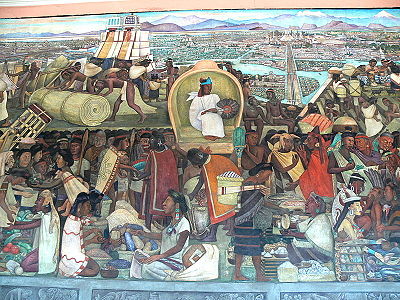Art History
 From Conservapedia
From Conservapedia Art history is the study of art over the ages, from the earliest cave paintings to the latest avant garde works of the 21st Century. Art history is usually divided into different art movements or organized by region, country, century or even decade (i.e. American Abstract Expressionists of the 1950s).
The modern way of studying art history is based upon a linear progression, with one art movement following another or sometimes co-existing at the same time (i.e. Dada and Surrealism started roughly around the same time and shared similar ideas). This idea of studying art history and explaining it is sometimes called the Greenberg Method, after the art critic Clement Greenberg.
There are literally hundreds of different art movements and art groups. A few of the popular artistic movements (listed in chronological order) are: Neo-Classical, Romanticism, Realism, Impressionism, Post-Impressionism, Fauvism, Cubism, Dada, Surrealism, Abstract Expressionism, Modernism, Postmodernism.
Please note: Avant Garde is not an art movement. It is just a way of describing what is the newest fad in art, the most outrageous and the most uniquely different. Some people have misinterpreted the term to mean cliche, but this is the result of artistic ignorance.
Diego Rivera, Mercado de Tlatelolco.
See also[edit]
External links[edit]
Categories: [Art]
↧ Download as ZWI file | Last modified: 02/08/2023 20:24:18 | 117 views
☰ Source: https://www.conservapedia.com/Art_history | License: CC BY-SA 3.0
 ZWI signed:
ZWI signed:

 KSF
KSF